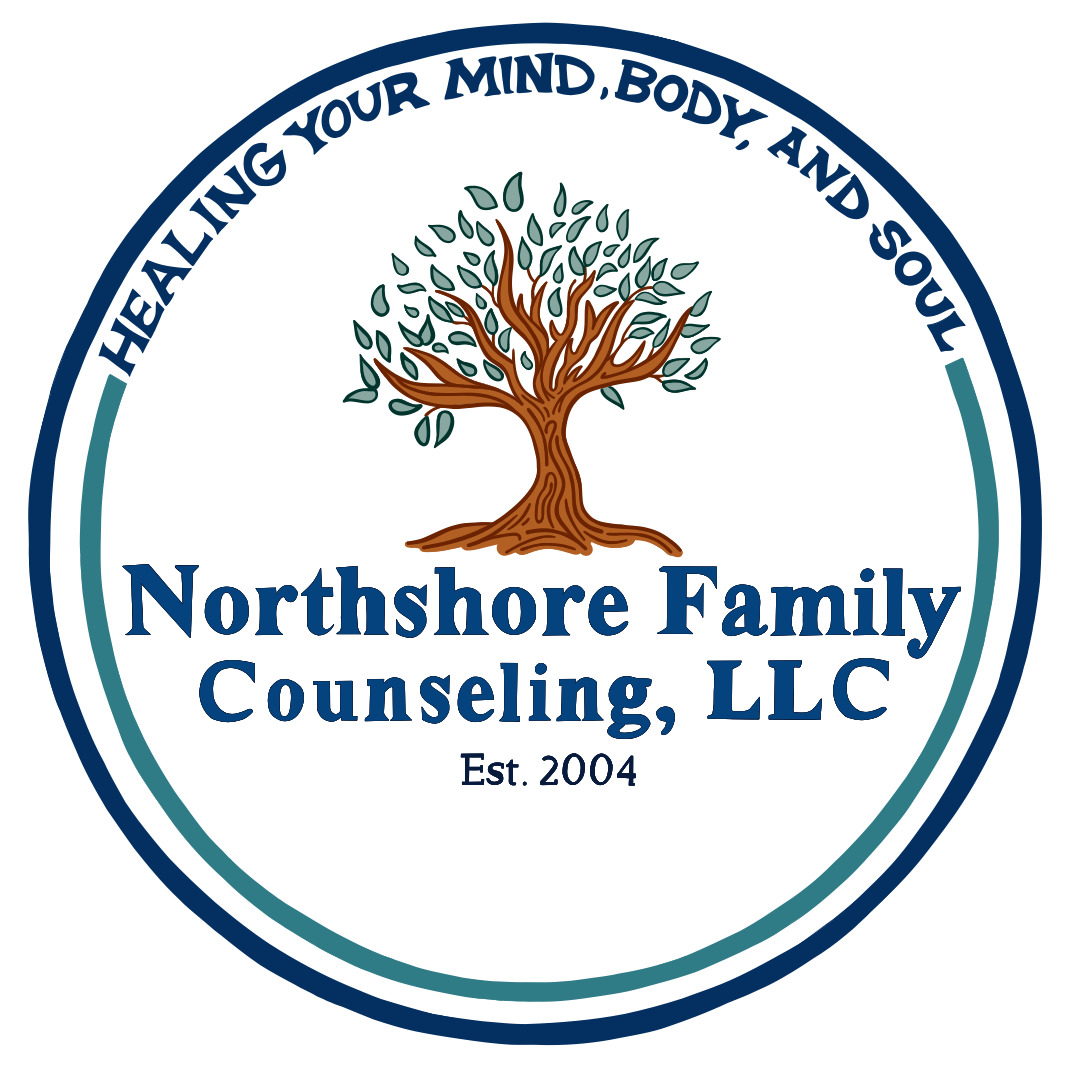At Northshore Family Counseling, LLC, we offer mental health and marital counseling services for individuals, couples, families, and groups. We provide comprehensive treatment, and counseling services for adults, adolescents, and children ages 7 and up.
Individual Counseling [click on bolded services for more info]
• Addiction & Recovery
• ADHD
• Anxiety
• Behavioral Issues
• Body Image Issues
• Christian Counseling
• Coping Skills
• Depression
• Grief and Issues of Loss
• Life Transition Issues
• Post Traumatic Stress Disorder (PTSD)
• Trauma Informed
Couples Counseling [click on bolded services for more info]
• Communication Issues
• Divorce
• Infidelity
• Intimacy issues
• Pre-marital, Pre-commitment Counseling
• Relationship Transitions
• Separation Issues
• Sex Addictions
Family Therapy [click on bolded services for more info]
• Caring For Aging Family Members
• Family Communication Problems
• Oppositional Defiance
• Parent-child Conflicts
• Parenting Education
• Transition After Divorce Or Separation
Play Therapy [click on bolded services for more info]
Crisis Counseling [click on bolded services for more info]
First Responders [click on bolded services for more info]
The initial goal of IFS therapy is to help the client access their Self and befriend the parts of themselves that have acted in protector roles. After, the goal is for the client to access wounds or hurt parts and heal them through an unburdening process. The ultimate goal of IFS is to increase the client’s access to Self so that they can be more Self-led. This process naturally allows clients to reach other goals they may have such as decreasing anxiety, improving relationships, or recovering from trauma.
